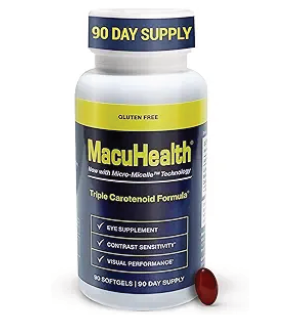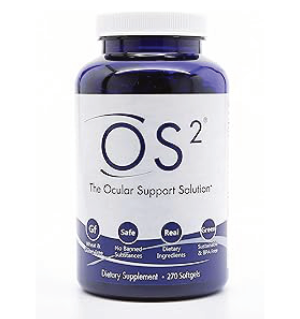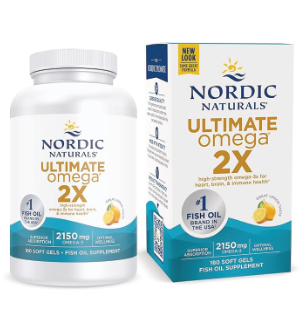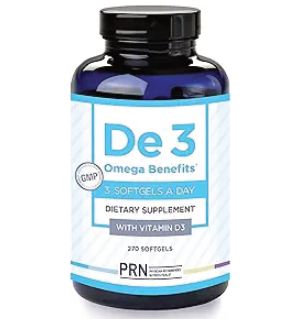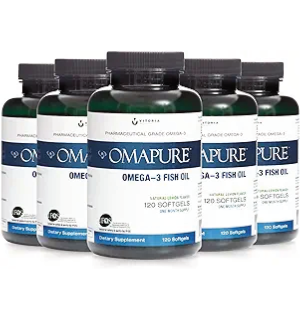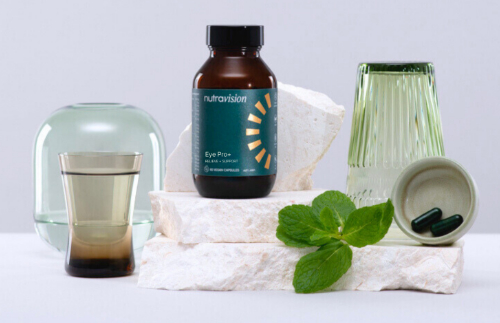
Did you know that there are natural macular degeneration remedies that can reduce your risk of AMD?
In this post, I list 6 key natural macular degeneration remedies that you may not be aware of, but are vital for your macular health.
But before we get into that, let’s find out a bit more about macular degeneration first.
What is macular degeneration and why is it important?
Age-related macular degeneration or AMD is a disease that affects the macula and your central vision. The photoreceptors located at the macula stop functioning properly (either from cell death or fluid leakage), causing blurring and distortion of your central vision.
According to Prevent Blindness America, macular degeneration is the leading cause of legal blindness in Americans aged 65 and older.
In fact, AMD isn’t just a problem in America – it is the number one cause of blindness in first world countries.
In macular degeneration, your central vision is affected. You may notice problems with reading, recognizing faces and driving. You may also notice distortion of straight lines and smudges in your central vision.
The good news? Highly effective and proven treatment is available for macular degeneration, but only the wet (exudative) type.
The bad news? This treatment involves repeated repeated injections of anti-VEGF medication into the eyeball over the long term (usually years).
The other bad news? Anti-VEGF injections does not work at all for dry macular degeneration, which also happens to be a lot more common than wet macular degeneration.
So is there any way to we can naturally reduce our risk of getting macular degeneration? There are certainly risk factors for AMD that you can’t change, such as age, family history and genes.
The good news is that there are also risk factors that can be changed. In other words, there are medication-free, natural remedies that you can incorporate into your lifestyle to reduce your risk of macular degeneration.
In this post, I list 6 natural macular degeneration remedies and supplements that can help reduce your risk of macular degeneration.
1. Avoid cigarette smoke to reduce toxins
Smoking is a significant risk factor for many eye and general health problems. Eye conditions that can worsen with cigarette smoking include cataract, glaucoma and thyroid eye disease.
Cigarette smoke contains many harmful chemicals, such as tobacco-specific N-nitrosamines (TSNAs), benzene, pesticides, arsenic, cadmium, cyanide, and many many more. These toxins circulate all around the body and cause oxidative damage to the macula and other parts of the eye.
Smoking more than doubles the risk of AMD. If you smoke more than a pack of cigarettes daily, you are twice as likely to develop AMD compared to non-smokers. Reducing exposure to the toxins from cigarettes and vapes is critical for macular health.
2. Reduce exposure to ultraviolet radiation
Exposure to high levels of sunlight and ultraviolet light may increase the risk of developing age-related macular degeneration.This occurs due to direct thermal damage and through free radical oxidation.
Look for sunglasses that provide 100% ultraviolet light protection. Polarizing, tinted and reflective glasses are not likely to be able to provide sufficient UV protection. The sunglasses should also be close fitting and wrap-around to minimize direct UV exposure to your eye.

3. Regular exercise to improve circulation
Not only is exercise good for your general health, it is also good for overall eye health, and macular health in particular.
Exercise (at least 3 times a week) and an active lifestyle can decrease the risk of developing wet macular degeneration by at least 70%.
Regular cardiovascular exercise reduces inflammation and irregularities in the blood vessel walls associated with choroidal neovascularization in wet macular degeneration.
Even simple exercise, such as walking, helps. If you walk more than 12 blocks regularly, your risk of developing macular degeneration decreases by up to 30%.
On the other hand, if you have high blood pressure that is not under control, then you are 3 times more likely to develop macular degeneration than someone without high blood pressure.
4. Eye vitamins for macular degeneration
a) AREDS (Age-Related Eye Diseases Study) & AREDS 2
The AREDS (Age-Related Eye Diseases Study) was a major clinical trial sponsored by the National Eye Institute of the United States.
The following is the AREDS formulation:
1. Vitamin C 500 mg
2. Vitamin E 400 IU (International Units)
3. Vitamin A 25,000 IU or beta-carotene 15 mg
4. Zinc 80 mg
5. Copper 2 mg
However, separate trials funded by the National Cancer Institute found that beta-carotene may increase the risk of lung cancer among smokers. As a result, a new formulation was required that did not contain beta-carotene.
The AREDS formulation was therefore modified to the AREDS 2 version listed below:
1. Vitamin C 500 mg
2. Vitamin E 400 IU
3. Zinc 80 mg
4. Copper 2 mg
5. Lutein 10 mg
6. Zeaxanthin 2 mg
With AREDS 2, there is no beta-carotene. In its place are the carotenoid pigments lutein and zeaxanthin. Lutein and zeaxanthin have the same benefits as beta-carotene, but are not associated with an increased risk of cancer.
In the AREDS 2 trial, the AREDS formulation combined with lutein and zeaxanthin (no beta-carotene) significantly reduced the risk of intermediate macular degeneration progressing to advanced macular degeneration.
The results were actually better than the AREDS formulation with beta-carotene (no lutein and zeaxanthin).
The AREDS 2 trial has therefore cemented lutein and zeaxanthin as the main ingredients for natural macular degeneration treatment and prevention.
Please be aware that the AREDS 2 supplements mainly benefit those with intermediate macular degeneration by reducing the risk of progression to late AMD by 26%. Unfortunately, neither AREDS or AREDS 2 formulations provide any significant benefit for early and late AMD.
b) Which is the best vitamin for macular degeneration?
Great question. Previously, I would have recommended those that are based on the AREDS 2 formula but with additional special ingredients for macular health such as bilberry.
However, my recommendation now would be Nutravision from Australia.
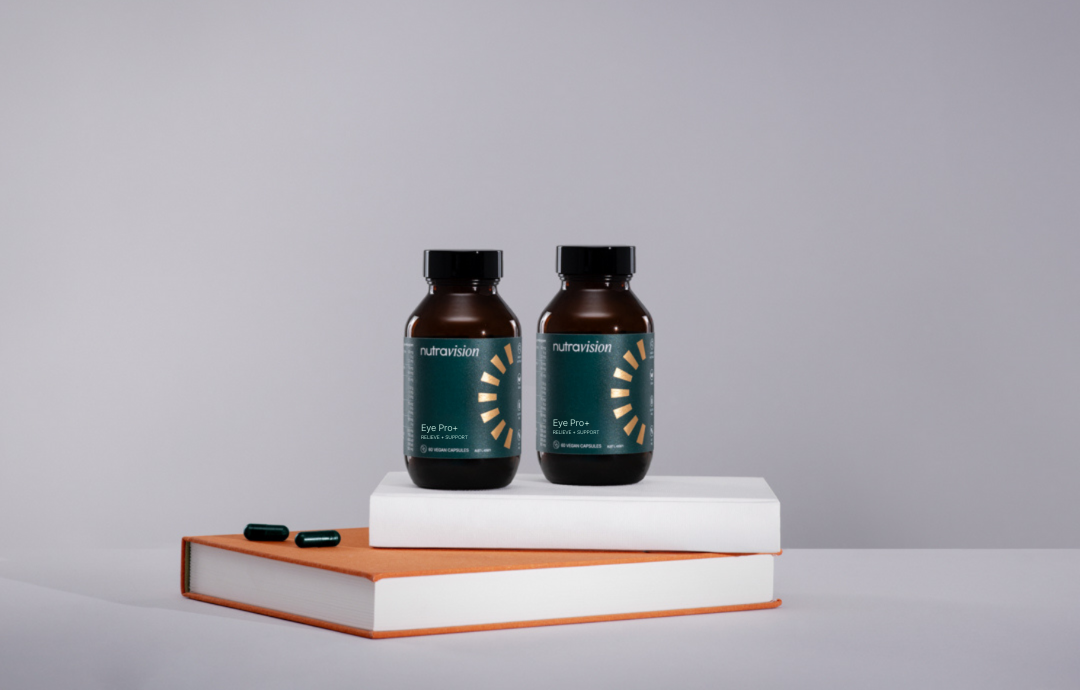
Nutravision contains lutein and zeaxanthin at AREDS2 dosages, but not the other components (vitamin C, vitamin E and zinc) which you should be able to get from diet.
The high strength formula combines bilberry, ginkgo biloba, grape seed, L-methylfolate (activated folate), lutein, methylcobalamin (activated vitamin B12), nicotinamide (active vitamin B3), saffron, and zeaxanthin.
Individually, each of these 10 powerful ingredients already confers their own unique proven benefits on macular and retinal health, either directly or indirectly.
- Bilberry: contains anthocyanins which promote rhodopsin regeneration in rod photoreceptors in the retina
- Ginkgo biloba: reduces blood viscosity and increases blood microcirculation to the retina
- Grape seed: helps control blood pressure, which is an important risk factor for macular degeneration
- Folate & vitamin B12: both reduce homocysteine levels in the blood and the risk of macular degeneration. If you increased your vitamin B12 intake through supplements, you reduce your risk of macular degeneration by 47%.
- Nicotinamide: increases the anti-ageing enzyme, NAD+, in cells
- Saffron: powerful antioxidant that improves macular function in early macular degeneration
When taken together, what you get is probably the most potent, synergistic and comprehensive protection for macular health the world has ever seen.
Not even the AREDS2 formula is able to protect and benefit macular health through so many different biocellular pathways.
Nutravision is available for purchase with international delivery to most countries.
c) What about omega-3 fatty acids?
Omega-3 long-chain polyunsaturated fatty acids (docosahexaenoic acid and eicosapentaenoic acid), commonly found in whole grains and cold water fish, help to improve blood flow and transport of oxygen and nutrients to the eyes.
They were evaluated in the AREDS 2 trial, but were not found to have any protective effect against AMD.
Nevertheless, most experts do suggest taking it since other clinical studies have found that a high dietary intake of omega-3 fatty acids or fish reduced the risk of early and late AMD risk.
However, please be careful about the fatty acids that you consume. AMD risk is increased with omega-6 fatty acids, which is found in some vegetable oils.
Remember: More omega-3, and less omega-6.
Most AREDS 2 formulations do not contain any omega-3 fatty acids. If you wish to supplement your diet with omega-3 fatty acids, below are a selection of high quality omega-3 fatty acids that you can try.
5. Eat a healthy diet packed full of antioxidants
If you take foods rich in antioxidants and carotenoids, you will have a 43% lower risk of developing macular degeneration than those who do not take such foods.
Daily consumption of at least 3 servings of fruit reduces the risk of macular degeneration by 36%.
Nuts may reduce the risk of macular degeneration progression by 40% if at least one serving is eaten per day.
So try to get as many of the following antioxidants as possible into your daily diet:
- Vitamin A (carrots, apricots, papayas)
- Vitamin C (berries, citrus fruits, tomatoes)
- Vitamin E (avocados, green leafy vegetables, fish)
- Zinc (whole bran, eggs, peanuts)
- Lutein (kale, spinach, broccoli)
- Zeaxanthin (brussels sprouts, cucumbers, green olives).
6. Regular monitoring by eyecare professionals
OK, so this is not strictly a natural remedy for macular degeneration. However, it doesn’t detract from the fact that regular eye exams are important for early detection and treatment of macular degeneration.
If you are over 65, arrange for a complete eye examination at least once a year. Do this even if you feel you have no trouble with your eyesight.
You may want to undergo more frequent eye checkups if you feel you are at higher risk of AMD, such as a positive family history.
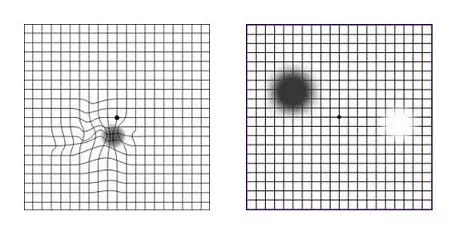
Vision testing with the Amsler grid: examples of distortion and smudges that may occur with age-related macular degeneration.
You can also monitor for the symptoms of AMD by yourself with the Amsler grid. Features that are typical for AMD include smudges, blurry patches and distortion of straight lines.
If you detect any problems with your vision during Amsler grid testing, consult your ophthalmologist as soon as possible. The sooner treatment for macular degeneration is started, the better the outcomes will be.
Final word on natural treatments and supplements for macular degeneration
The natural macular degeneration remedies and supplements described above must not replace the treatment that has already been prescribed by your eye specialist.
Rather, these remedies should be in addition to and complementary to your existing treatment.
If you are considering natural AMD remedy supplements, please make sure to discuss with your eye specialist and family doctor first to avoid adverse drug interactions and unwanted side effects.
See Related: What should I expect with eye injections for AMD?




